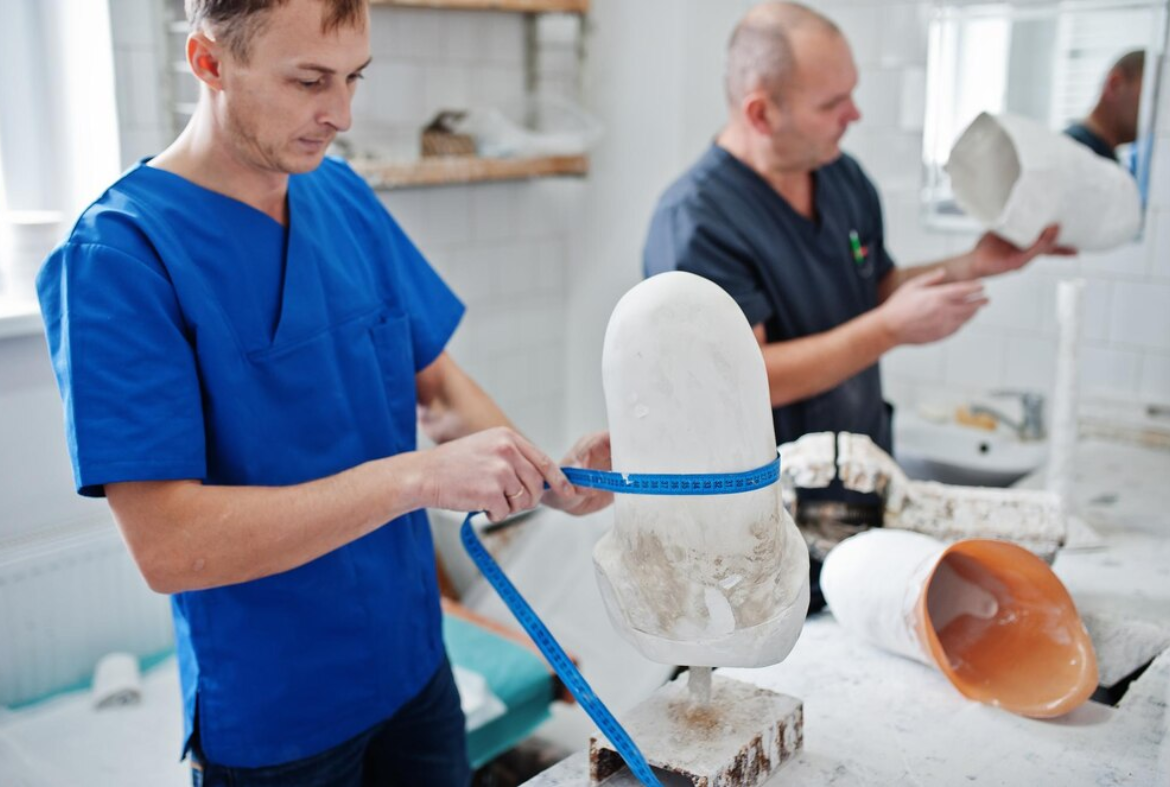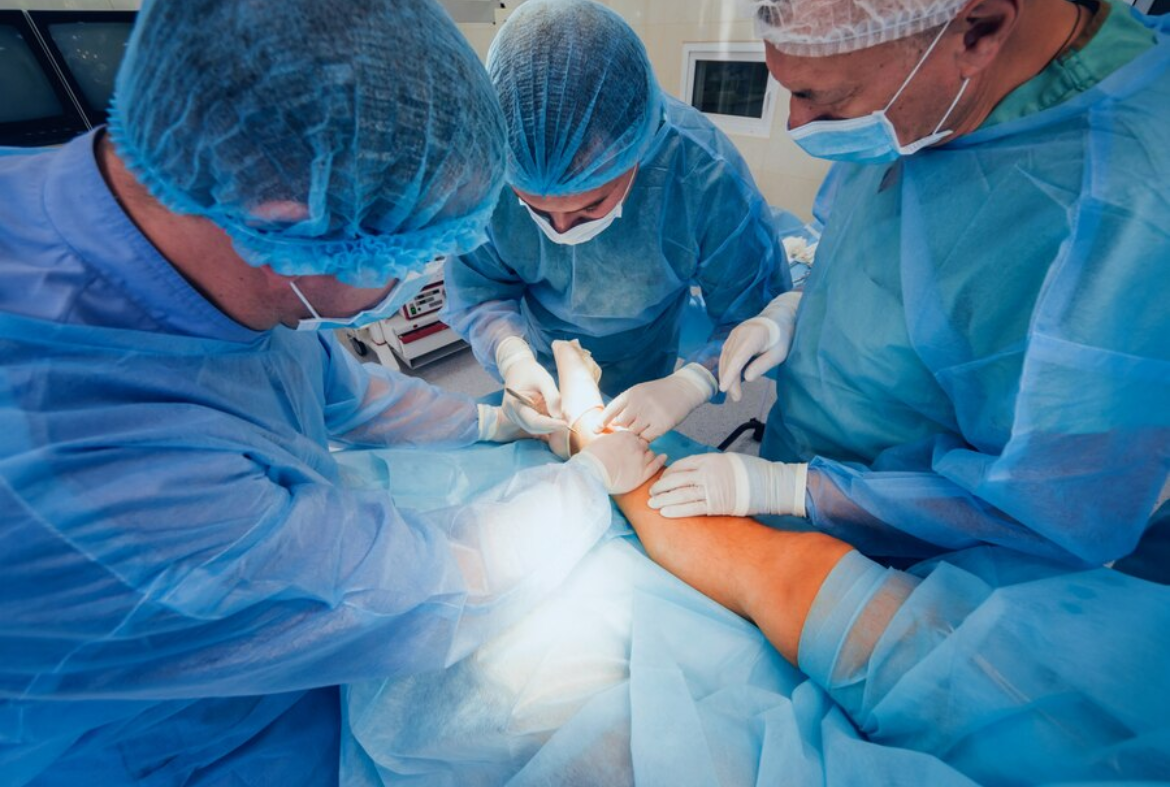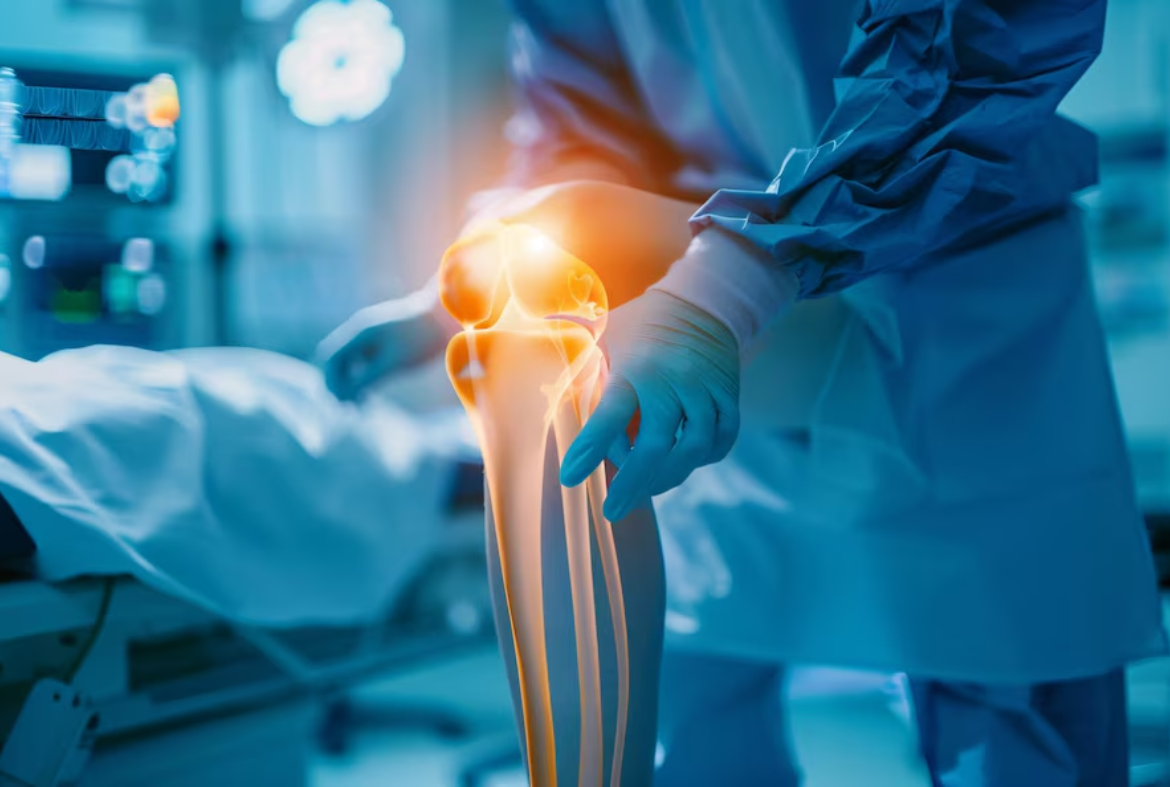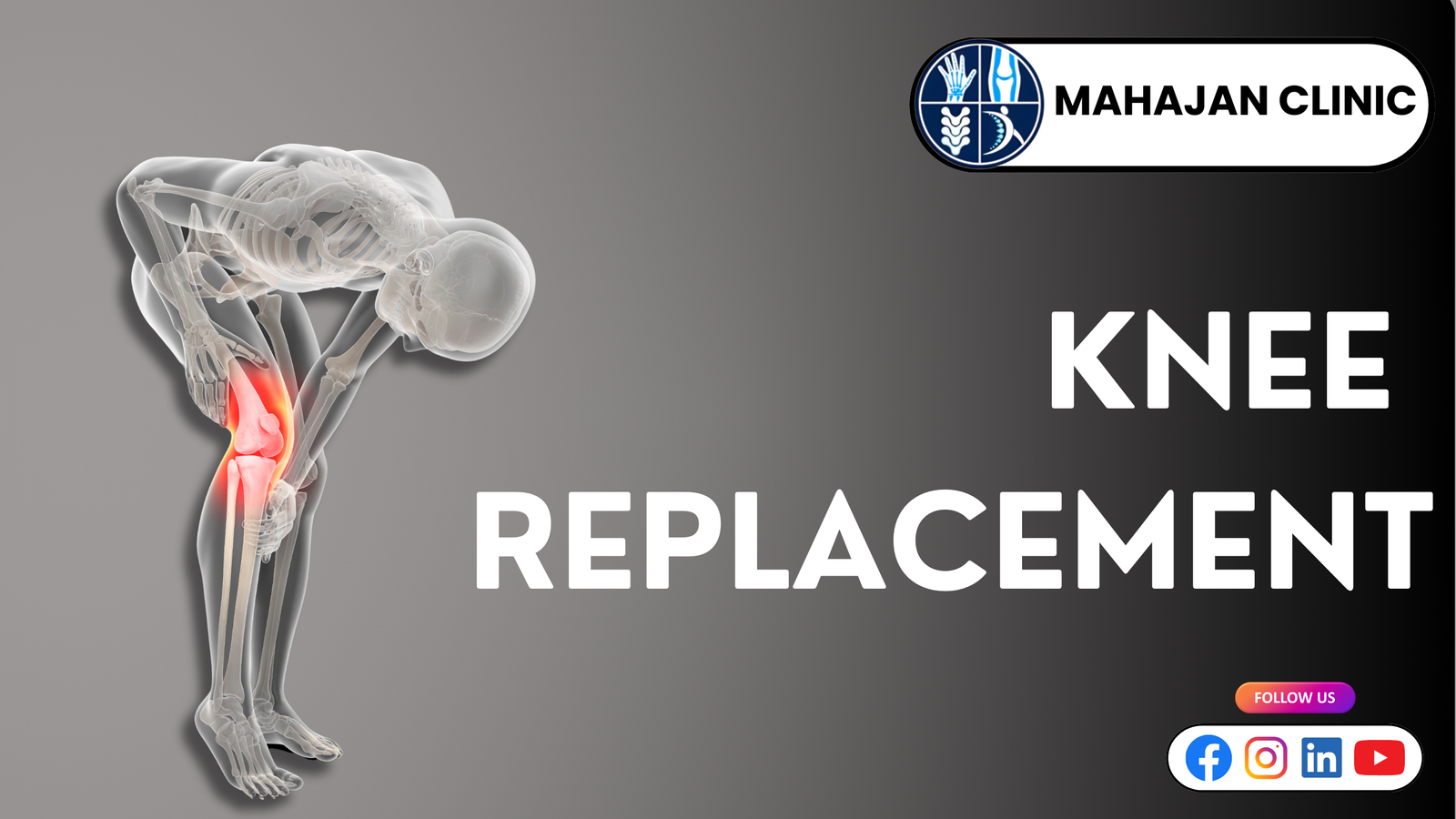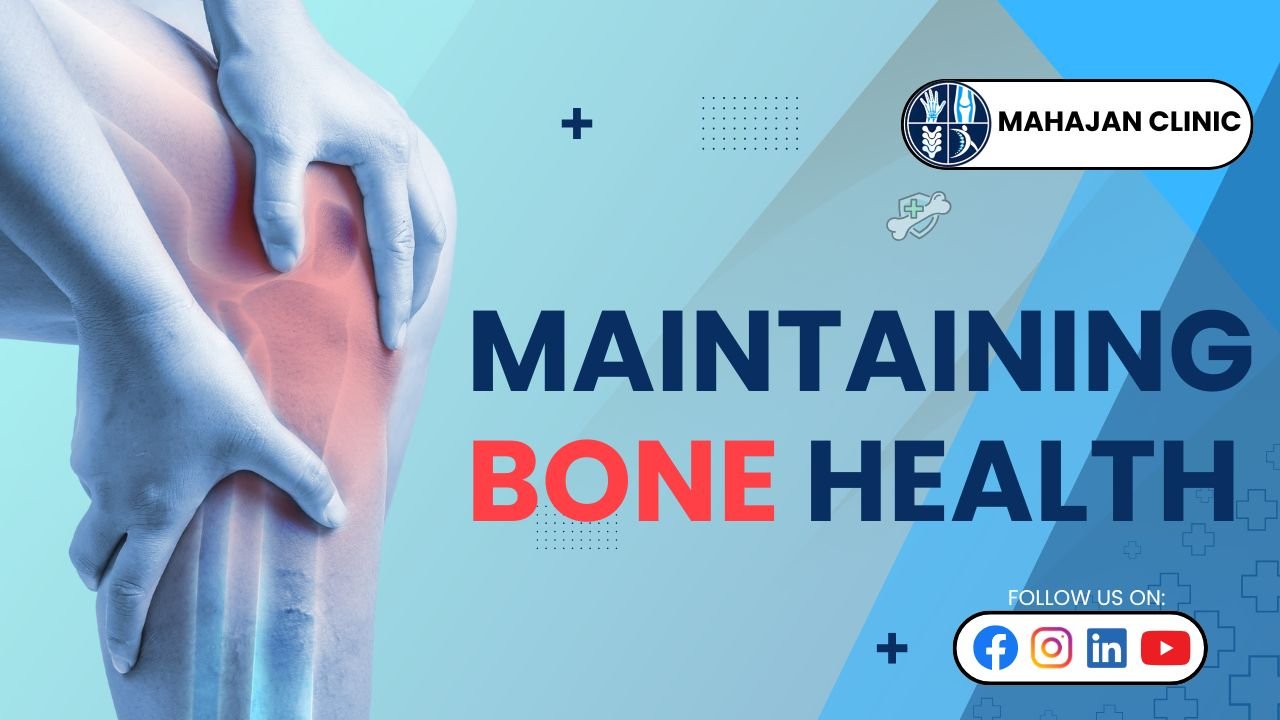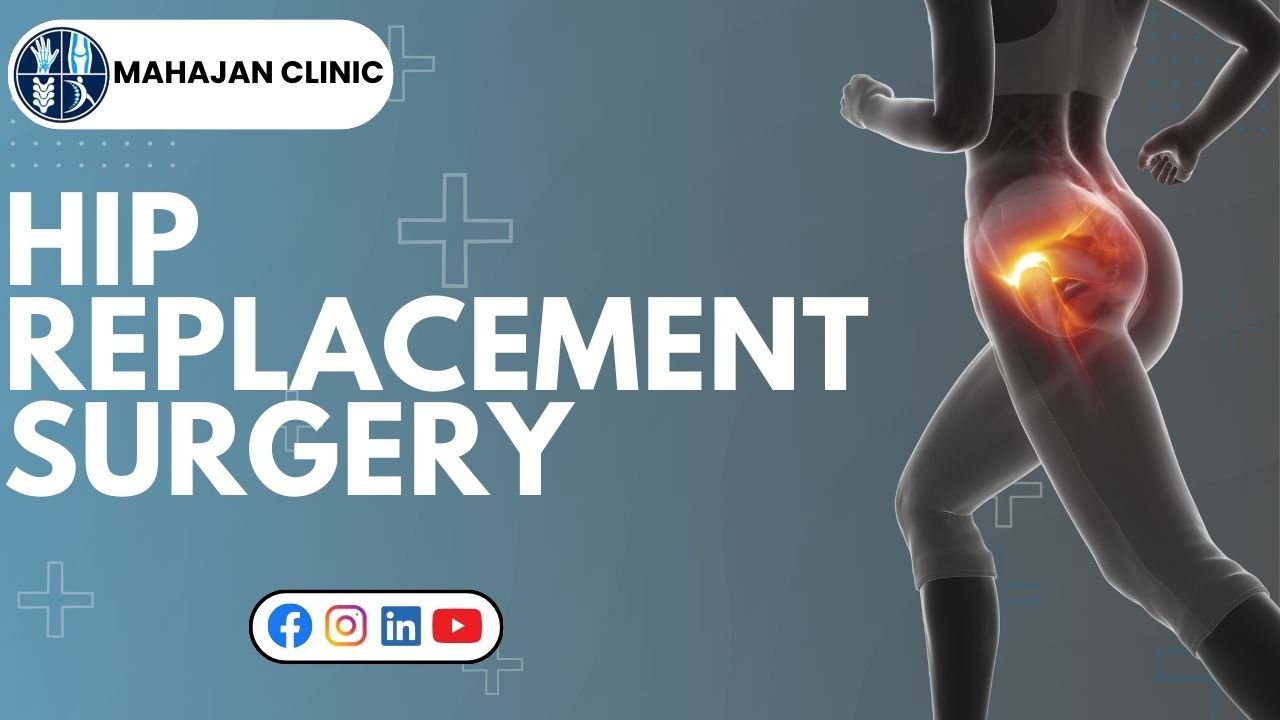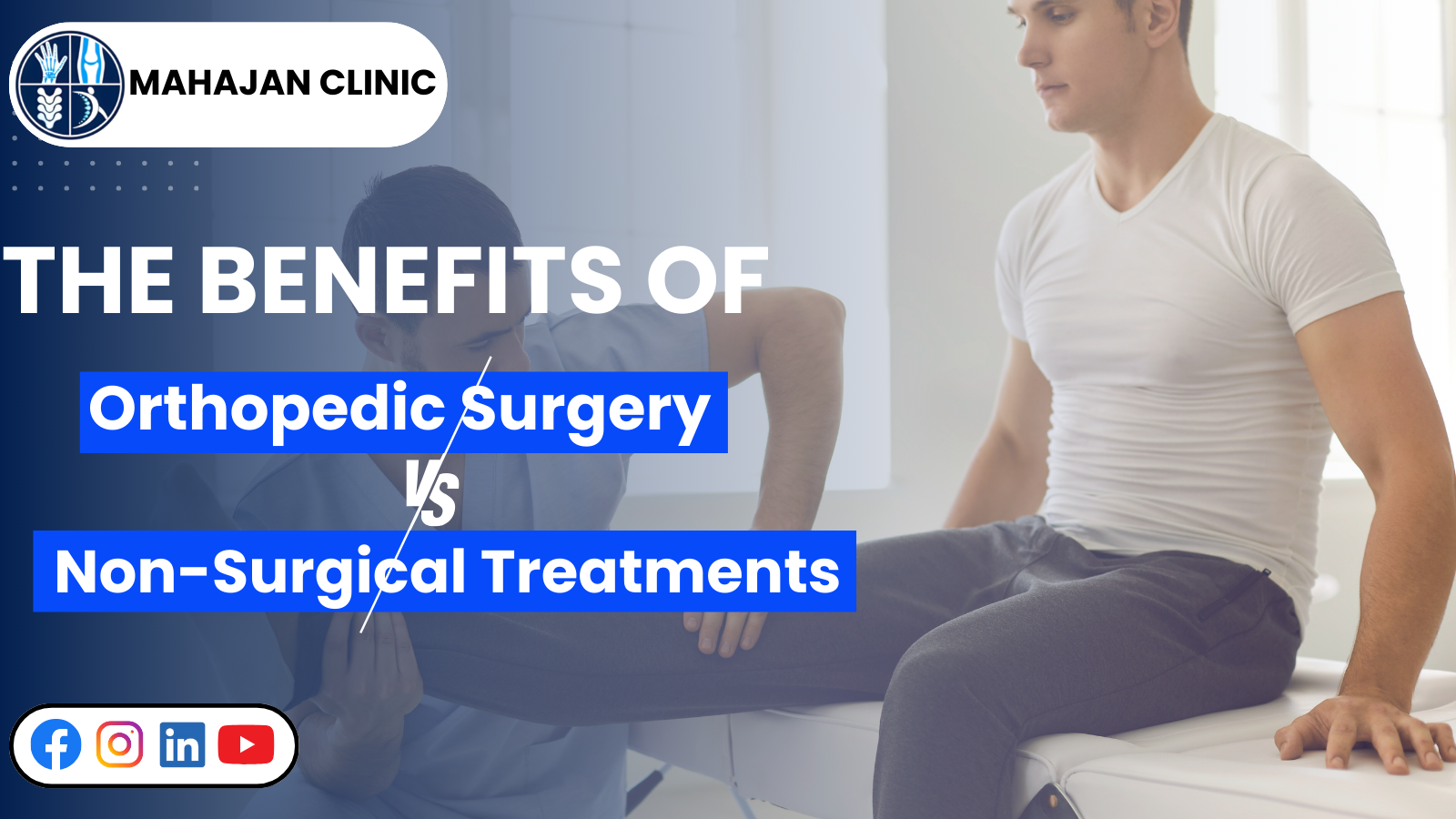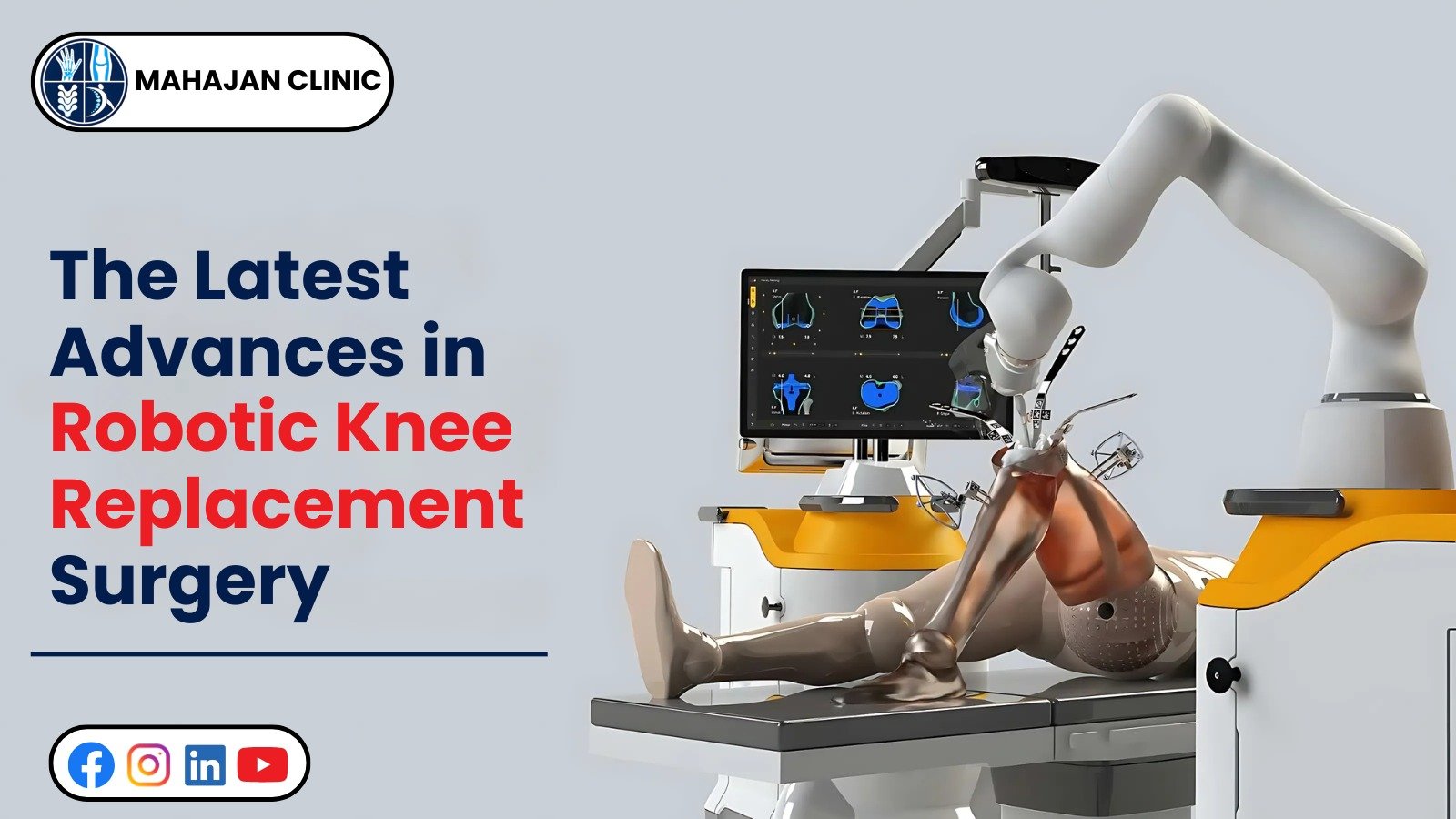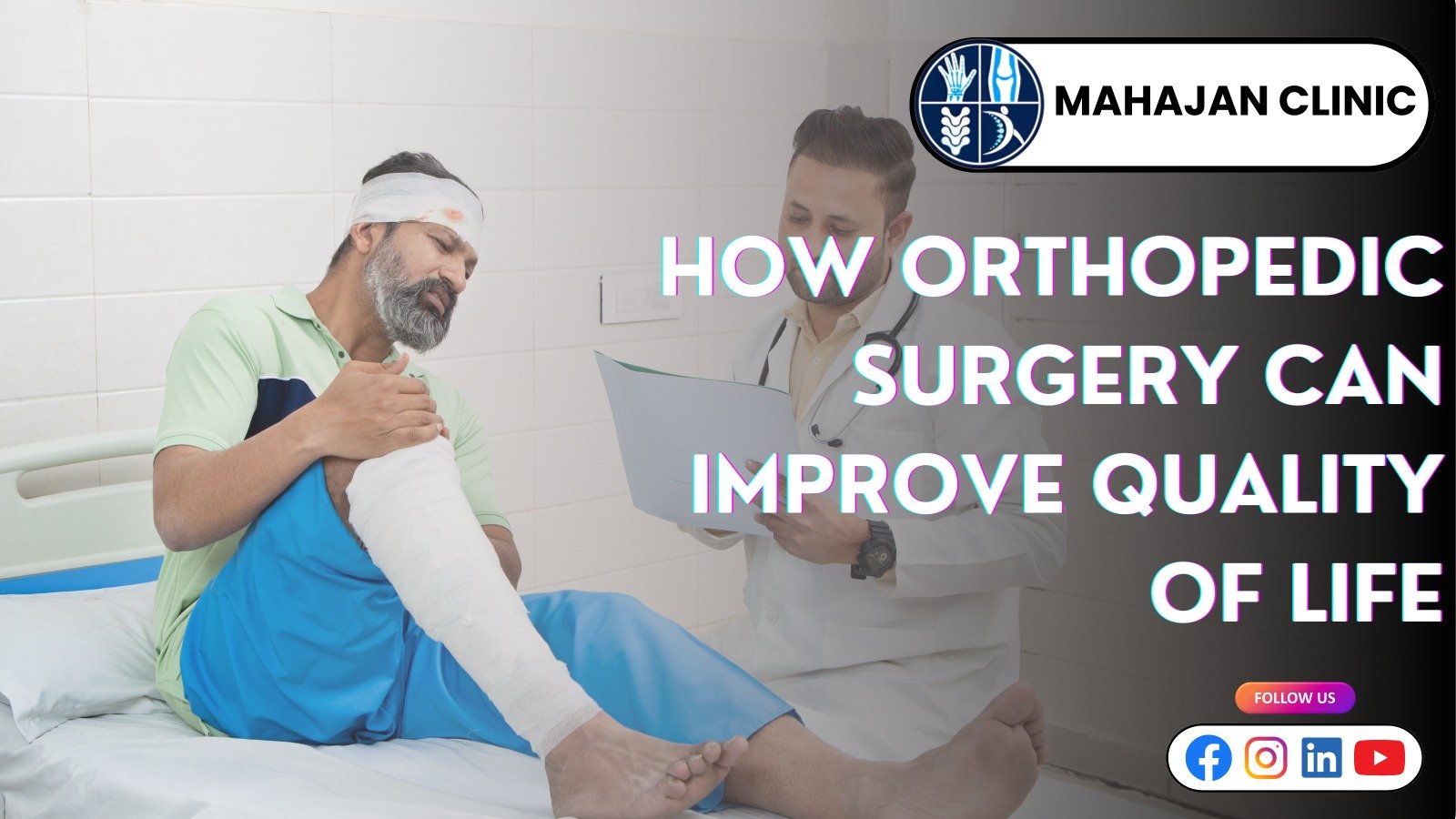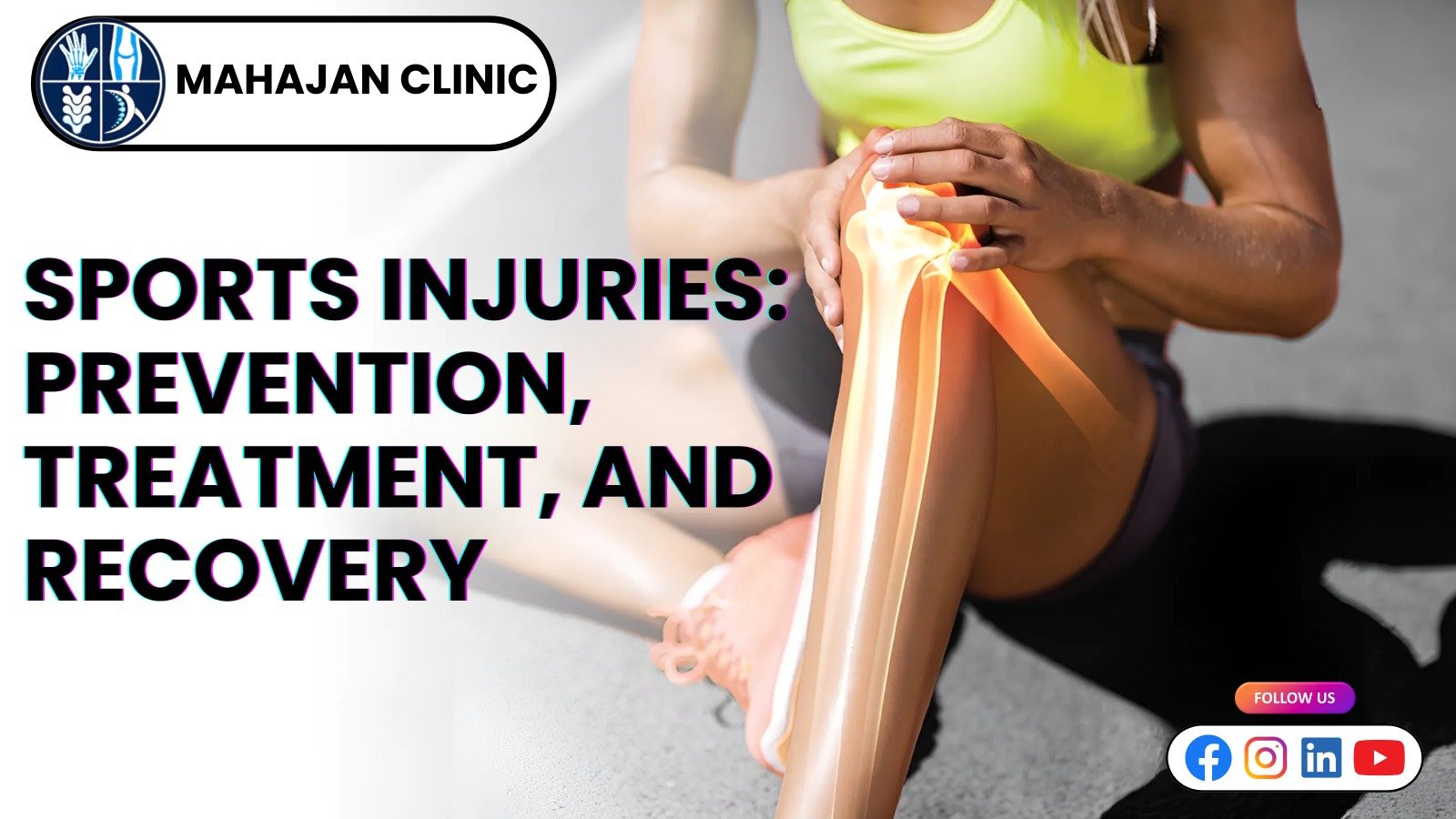Blog Details

Common Myths About Orthopedic Surgery Debunked
Orthopedic surgery is a vital branch of medicine that focuses on diagnosing, treating, and rehabilitating musculoskeletal disorders. Despite its significance in improving patients' quality of life, numerous myths and misconceptions surround orthopedic surgery. These myths can lead to unnecessary fear and hesitation when it comes to seeking treatment. Dr. Rakesh Mahajan aims to debunk common myths about orthopedic surgery, providing accurate information to help you make informed decisions about your health. If you're considering treatment, consulting an orthopedic surgeon in Delhi can provide you with the expertise you need.
Myth 1: Orthopedic Surgery is Only for the Elderly
The Truth
One of the most prevalent myths is that orthopedic surgery is only necessary for older adults. While age-related conditions like arthritis are common in seniors, orthopedic surgery can benefit individuals of all ages.
Why It Matters
Injuries from sports, accidents, or repetitive strain can affect young and middle-aged individuals. Conditions such as fractures, ligament tears, and tendon injuries can occur in active people, regardless of age. Early intervention through orthopedic surgery can lead to better outcomes and quicker recovery.
Real-Life Example
Consider a young athlete who suffers a torn ACL (anterior cruciate ligament) during a game. While this injury is common in older adults, it can happen to anyone engaged in sports. Timely surgical intervention by an orthopedic surgeon in Delhi can restore knee stability and allow the athlete to return to their sport.
Myth 2: Surgery is the Only Option for Orthopedic Problems
The Truth
Many people believe that surgery is the only solution for orthopedic issues. However, this is not always the case.
Why It Matters
Orthopedic surgeons often explore non-surgical treatment options first, such as physical therapy, medication, and lifestyle changes. Surgery is typically considered when conservative treatments fail to provide relief or when the condition is severe.
Non-Surgical Alternatives
- Physical Therapy: Tailored exercises can strengthen muscles and improve mobility.
- Medications: Anti-inflammatory drugs can help manage pain and swelling.
- Injections: Corticosteroid injections can provide temporary relief for joint pain.
Real-Life Example
A patient with chronic knee pain may initially be treated with physical therapy and anti-inflammatory medications. If these treatments do not alleviate the pain, the orthopedic surgeon in Delhi may then consider arthroscopic surgery to address the underlying issue.
Myth 3: All Orthopedic Surgeries Are Invasive
The Truth
Not all orthopedic surgeries require large incisions or extensive recovery times. Advances in technology have led to the development of minimally invasive surgical techniques.
Why It Matters
Minimally invasive surgeries, such as arthroscopy, involve smaller incisions and less tissue damage. This can result in:
- Reduced pain
- Shorter recovery times
- Lower risk of complications
Examples of Minimally Invasive Procedures
- Arthroscopy: A small camera is inserted into the joint to diagnose and treat issues.
- Endoscopic Carpal Tunnel Release: A small incision is made to relieve pressure on the median nerve.
Real-Life Example
A patient suffering from a meniscus tear in the knee may undergo arthroscopic surgery, which allows the orthopedic surgeon in Delhi to repair the tear through a small incision. This approach typically results in less postoperative pain and a quicker return to normal activities.
Myth 4: Recovery from Orthopedic Surgery is Always Long and Painful
The Truth
While recovery times can vary depending on the type of surgery and individual factors, many patients experience quicker recoveries than they expect.
Why It Matters
Advancements in surgical techniques, pain management, and rehabilitation have improved recovery outcomes. Many patients can return to their daily activities sooner than anticipated.
Factors Influencing Recovery
- Type of Surgery: Some procedures have shorter recovery times than others.
- Patient Health: Overall health and adherence to post-operative care can impact recovery.
- Rehabilitation: Engaging in physical therapy can speed up the healing process.
Real-Life Example
A patient undergoing a hip replacement may initially expect a long recovery. However, with modern techniques and a structured rehabilitation program, many patients can walk with assistance within a day or two after surgery, thanks to the expertise of their orthopedic surgeon in Delhi.
Myth 5: Orthopedic Surgery is Always Painful
The Truth
Many people fear that orthopedic surgery will be excruciatingly painful. However, modern pain management techniques have significantly improved the surgical experience.
Why It Matters
Surgeons use various methods to minimize pain during and after surgery, including:
- Anesthesia: General or regional anesthesia is used to ensure patients are comfortable during the procedure.
- Pain Medications: Post-operative pain can be managed with medications tailored to the individual’s needs.
- Nerve Blocks: Localized nerve blocks can provide targeted pain relief.
Real-Life Example
A patient undergoing shoulder surgery may receive a nerve block before the procedure, significantly reducing pain during and after surgery. This allows for a more comfortable recovery experience, facilitated by their orthopedic surgeon in Delhi.
Myth 6: You Will Be Immobilized for a Long Time After Surgery
The Truth
While some orthopedic surgeries may require immobilization, many procedures allow for early movement and rehabilitation.
Why It Matters
Early mobilization can promote healing and prevent complications such as blood clots and stiffness. Surgeons often encourage patients to begin gentle movements as soon as it is safe.
Examples of Early Mobilization
- Knee Replacement: Patients may begin physical therapy within a day or two after surgery.
- Shoulder Surgery: Gentle range-of-motion exercises can start shortly after the procedure.
Real-Life Example
A patient who undergoes a total knee replacement may be encouraged to start walking with the help of a physical therapist within 24 hours of surgery, promoting faster recovery and better outcomes, thanks to the guidance of their orthopedic surgeon in Delhi.
Myth 7: Orthopedic Surgeons Only Treat Injuries
The Truth
While orthopedic surgeons are known for treating injuries, they also manage a wide range of conditions affecting the musculoskeletal system.
Why It Matters
Orthopedic surgeons can diagnose and treat chronic conditions, congenital disorders, and degenerative diseases. Their expertise extends beyond acute injuries.
Conditions Treated by Orthopedic Surgeons
- Arthritis: Joint inflammation that can cause pain and stiffness.
- Tendinitis: Inflammation of tendons due to overuse.
- Bursitis: Inflammation of the bursae, small fluid-filled sacs that cushion joints.
Real-Life Example
A patient with osteoarthritis in the knee may consult an orthopedic surgeon in Delhi for management options, which could include physical therapy, injections, or, if necessary, surgical intervention.
Myth 8: All Orthopedic Surgeries Have the Same Success Rate
The Truth
Success rates for orthopedic surgeries can vary significantly based on several factors, including the type of procedure, the patient's overall health, and adherence to post-operative care.
Why It Matters
Understanding that not all surgeries are created equal can help patients set realistic expectations and make informed decisions about their treatment options.
Factors Influencing Success Rates
- Type of Surgery: Some procedures, like arthroscopic surgeries, may have higher success rates than others.
- Patient Factors: Age, overall health, and lifestyle choices can impact surgical outcomes.
- Post-Operative Care: Following the surgeon's recommendations for rehabilitation and recovery is crucial for success.
Real-Life Example
A patient undergoing a total hip replacement may have a high success rate, with many patients experiencing significant pain relief and improved mobility. In contrast, a more complex procedure may have varying outcomes based on individual circumstances, as explained by their orthopedic surgeon in Delhi.
Myth 9: You Can’t Return to Sports After Orthopedic Surgery
The Truth
Many patients fear that orthopedic surgery will end their athletic pursuits. However, with proper rehabilitation and guidance, many individuals can return to their favorite sports.
Why It Matters
Understanding the potential for a return to activity can motivate patients to engage in rehabilitation and follow their surgeon's recommendations.
Factors Influencing Return to Sports
- Type of Surgery: Some procedures may have longer recovery times than others.
- Rehabilitation: A structured rehabilitation program is essential for regaining strength and mobility.
- Patient Commitment: Adhering to rehabilitation protocols and gradually increasing activity levels is crucial.
Real-Life Example
An athlete who undergoes surgery for a torn ACL can often return to their sport after completing a comprehensive rehabilitation program, typically within six to nine months, with the support of their orthopedic surgeon in Delhi.
Myth 10: Orthopedic Surgery is Only for Severe Conditions
The Truth
Many people believe that orthopedic surgery is only necessary for severe conditions. However, early intervention can often lead to better outcomes.
Why It Matters
Addressing orthopedic issues before they become severe can prevent further complications and improve quality of life.
Conditions That May Benefit from Early Surgery
- Meniscus Tears: Early surgical intervention can prevent further damage and improve recovery.
- Carpal Tunnel Syndrome: Surgery may be recommended if conservative treatments fail to provide relief.
Real-Life Example
A patient with a minor meniscus tear may initially be treated conservatively. However, if symptoms persist, early surgical intervention by an orthopedic surgeon in Delhi can prevent further damage and facilitate a quicker recovery.
Overall Summary
Understanding the facts about orthopedic surgery is essential for making informed decisions about your health. By debunking these common myths, Dr. Rakesh Mahajan hopes to empower patients to seek the care they need without fear or hesitation.
If you are experiencing musculoskeletal issues, don’t let misconceptions hold you back. Consult with an orthopedic surgeon in Delhi to explore your options and take the first step toward a healthier, more active life. Remember, early intervention can lead to better outcomes and a quicker return to the activities you love.
